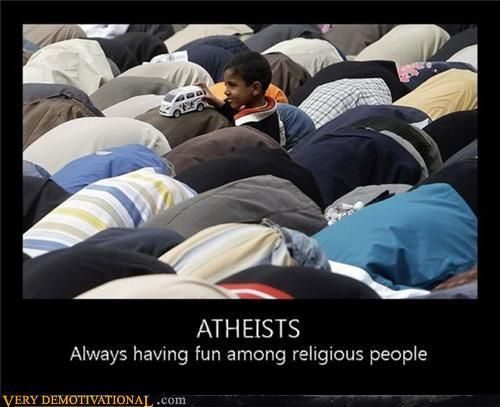Fundamentalists vs. Christian Nationalists: Same Hymnbook, Different Verses
How Literalist Faith and Political Power Collide in America’s Ongoing Culture War

Introduction
America has no shortage of religious movements, but few are as loud, insistent, and politically consequential as fundamentalist Christianity and Christian nationalism. They’re often lumped together, sometimes used interchangeably, and for good reason — the overlap is real. Both groups appeal to “biblical values,” both stand against secularism, and both want America to look more like the church pew than the town square.
But while they sing from the same hymnbook, they’re not quite the same choir. Fundamentalist Christianity is, at its core, a theological project. It’s about biblical inerrancy, personal salvation, and living in strict obedience to what they see as God’s commands. Christian nationalism, on the other hand, is unabashedly political. It seeks to merge faith with state, rewriting the American experiment into a theocracy dressed up in red, white, and blue.
In this blog, we’ll trace the definitions, histories, overlaps, and differences between these two movements. Along the way, we’ll explore how their apocalyptic thinking, moral absolutism, and political activism shape America’s cultural battles today.
What Is a Fundamentalist Christian?
Fundamentalism, as a movement, emerged in the late 19th and early 20th centuries as a response to modernism, scientific advances, and liberal theology. Darwin’s theory of evolution rattled the faithful. Higher criticism of the Bible undermined literal readings. Modernity itself looked like a threat.
So fundamentalists drew a line in the sand.
Definition
Fundamentalist Christians are conservative Protestants who insist on a literal interpretation of the Bible. They believe in strict moral codes and insist their version of Christianity is the only truth.
Focus
The heartbeat of fundamentalism is personal salvation and biblical inerrancy. Every word of Scripture is perfect, timeless, and binding. Fundamentalists also tend to emphasize end-times prophecy, seeing history as a countdown to the apocalypse.
Politics
Here’s the twist: while many fundamentalists today are deeply political, that wasn’t always the case. Early in the 20th century, many fundamentalists saw politics as “worldly” and avoided it. It wasn’t until the mid-20th century — especially in the 1970s and 80s with the rise of the “Moral Majority” — that fundamentalists fully embraced politics as a battlefield for their faith.
What Is a Christian Nationalist?
Christian nationalism is newer as a term, but not new as an impulse. From the Puritans onward, there has been a strain of thought in America that the nation itself has a divine mission. In the modern era, Christian nationalism has hardened into a distinct political ideology.
Definition
Christian nationalists believe the United States should be defined, governed, and run as an explicitly Christian nation. They want laws, policies, and culture to reflect what they consider “biblical values.”
Focus
Unlike fundamentalism, which emphasizes piety and salvation, Christian nationalism emphasizes national identity, law, and power structures. It’s about embedding Christianity into the very DNA of the state.
Politics
By definition, Christian nationalism is political. Its project is to merge Christianity (usually a conservative, Protestant version) with American governance. That means everything from rewriting textbooks to legislating morality, from restricting abortion to suppressing LGBTQ rights, from prayer in schools to church in the courtroom.
Where They Overlap
Fundamentalists and Christian nationalists overlap so often that it’s easy to confuse the two.
- Shared Moral Codes. Both condemn abortion, oppose LGBTQ rights, demand “traditional” gender roles, and treat “biblical authority” as supreme.
- Common Enemies. Both rail against secularism, liberalism, feminism, and anything that smacks of modernism.
- Apocalyptic Urgency. Fundamentalists’ obsession with prophecy feeds into Christian nationalists’ urgency. “If America doesn’t repent, it dies.” Both see cultural decline as proof that time is short.
- Political Alliances. In practice, fundamentalists often vote like Christian nationalists, and Christian nationalists often use fundamentalist rhetoric to motivate their base.
The two movements share a pew, even if they’re praying for slightly different things.
Where They Differ
Here’s where the line in the sand shows up.
1. Theological vs. Political Core
- Fundamentalists: Their starting point is theology. They care about biblical literalism, personal salvation, and doctrinal purity. Politics may follow, but it isn’t the core.
- Christian Nationalists: Their starting point is politics. The faith is a tool to achieve a political goal: reshaping America into a Christian nation.
2. Attitude Toward Politics
- Fundamentalists: Historically ambivalent. Some fundamentalist groups stayed aloof from politics, preferring to wait for Jesus to fix everything.
- Christian Nationalists: Politics is the whole game. Their faith without politics would be meaningless.
3. End-Times vs. Earthly Power
- Fundamentalists: Fixated on end-times prophecy. They see history as a prelude to Armageddon.
- Christian Nationalists: More focused on earthly power. They want to legislate now, govern now, and dominate now. Apocalypse may come later, but their eyes are on Washington, not Revelation.
4. Scope of Influence
- Fundamentalists: Often confined to church communities, denominations, or religious schools.
- Christian Nationalists: Explicitly national. They aim to remake the public square, the courts, and the Constitution.
Why It Matters
The difference isn’t just academic. Understanding the distinction helps explain much of today’s cultural conflict.
When you hear a pastor thunder about the end of days, you’re hearing fundamentalism. When you hear a politician declare that America is a “Christian nation,” you’re hearing nationalism. When the two converge — and they often do — the result is a potent blend of prophecy and politics that can shape elections, laws, and culture.
Case Study: Abortion
- Fundamentalist View: Abortion is murder because the Bible says life is sacred. They’ll preach sermons, hold rallies, and tell individuals to repent.
- Christian Nationalist View: Abortion is murder, yes — but more importantly, outlawing it is central to defining America as a Christian nation. They see abortion bans as not just moral, but as markers of national identity.
Case Study: Education
- Fundamentalist View: Public schools are dangerous because they teach evolution and undermine faith. Better to homeschool or send kids to Christian schools.
- Christian Nationalist View: Public schools should be reclaimed. Prayer should be mandatory. Evolution should be replaced with creationism. Public education should serve Christian identity.
Case Study: Government
- Fundamentalist View: Some fundamentalists still hold that politics is futile because the world is doomed anyway. Others participate reluctantly, as a way to hold back evil until Jesus returns.
- Christian Nationalist View: Politics is destiny. Gaining control of government is the entire point. Without political power, their vision cannot succeed.
The Psychological Appeal
Both groups share a psychological high: certainty. In a chaotic world, they offer a clear script.
- Fundamentalists thrive on certainty about God’s word and the end of history.
- Christian nationalists thrive on certainty about America’s destiny and their right to rule.
Together, they create a closed loop: “God’s word says it, America must enforce it.”
Why This Matters
The alliance between fundamentalists and Christian nationalists has consequences far beyond the pew. It shapes laws, elections, and social norms. It undermines pluralism, erodes church-state separation, and threatens democracy.
Fundamentalists may still dream about Armageddon, and Christian nationalists may still dream about rewriting the Constitution, but together they’ve built a movement that wields enormous influence in American politics.
Conclusion
Fundamentalists and Christian nationalists are not the same, but they feed each other. One provides the theology, the other the political strategy. One obsesses about the end of the world, the other obsesses about ruling this one.
All Christian nationalists are, in practice, religious conservatives who borrow heavily from fundamentalist theology. But not all fundamentalists are nationalists. You can be a fundamentalist and sit out politics. You cannot be a Christian nationalist and sit out politics — because politics is the point.
Understanding the difference matters because it tells us what we’re up against: a movement that fuses prophecy with power, scripture with sovereignty, and belief with the ballot box.
Disclaimer
The views expressed in this post are opinions of the author for educational and commentary purposes only. They are not statements of fact about any individual or organization, and should not be construed as legal, medical, or financial advice. References to public figures and institutions are based on publicly available sources cited in the article. Any resemblance beyond these references is coincidental.
References
Boyer, P. (1992). When Time Shall Be No More: Prophecy Belief in Modern American Culture. Harvard University Press.
Gorski, P. S., & Perry, S. L. (2022). The Flag and the Cross: White Christian Nationalism and the Threat to American Democracy. Oxford University Press.
Lindsey, H. (1970). The Late Great Planet Earth. Zondervan.
Marty, M. E., & Appleby, R. S. (Eds.). (1991). Fundamentalisms Observed. University of Chicago Press.
Weber, T. (2004). On the Road to Armageddon: How Evangelicals Became Israel’s Best Friend. Baker Academic.
Wojcik, D. (1997). The End of the World As We Know It: Faith, Fatalism, and Apocalypse in America. NYU Press.











